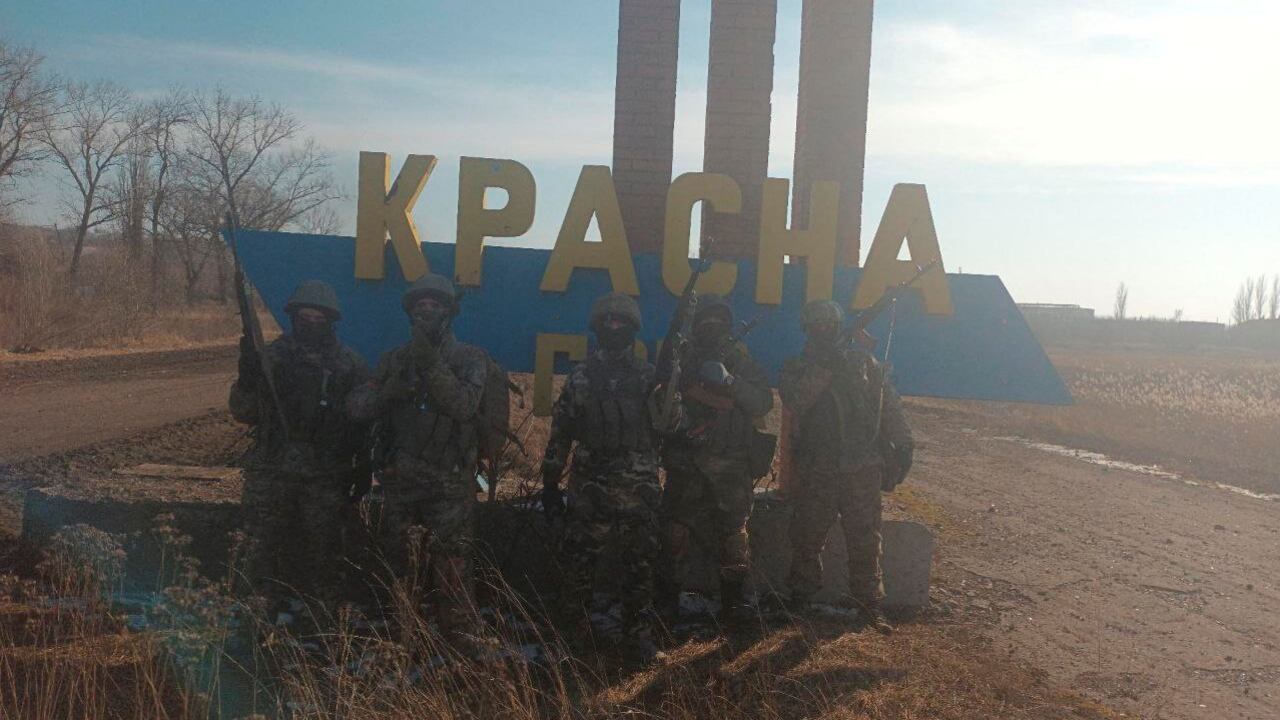Russia’s Wagner Group mercenaries are begging Moscow to provide them with ammunition for the fight in Ukraine, according to footage shared on social media this week.
In one video, in which four figures claim to be part of an artillery unit from Wagner, a man ticks off a list of ammunition the unit lacks, and appeals directly to the Russian Ministry of Defense for support.
“Every day we carry out difficult combat tasks, covering assault groups. At the moment, we are completely cut off from the ammunition supply,” the supposed Wagner fighters state in a video shared on Twitter. “We appeal to our colleagues and friends from the Ministry of Defense. We are confident there is this ammunition somewhere in the stockpiles, and we need them acutely… We will do the work for you—help us with ammunition.”
Another video shared this week on Telegram and Vkontakte shows what appears to be Wagner medics requesting more ammunition, standing before dead Wagner fighters lined up on the ground.
“Every day we lose hundreds of our comrades. There could have been half as many of them if the military functionaries had supplied us with weapons, ammunition, and everything that was needed on time,” one man says. “Stop messing around, let us fight, let us defend our country, our homeland. There are hundreds of our guys here.”
The pleas for help are the latest indication of a growing divide between the Wagner Group and Russia’s military, just as Moscow struggles to organize fighting for a renewed offensive in Ukraine this year.
Some of the starkest examples of Wagner and Russia’s military disagreements have come from the embattled city of Bakhmut in recent days. Russia has been trying and failing to seize Bakhmut for months, but when Wagner Group mercenaries announce they’ve made incremental gains nearby, Russia’s Defense Ministry seems to take a different tone.
Earlier this week, Wagner announced it had captured Krasna Hora near Bakhmut. Wagner Group owner Yevgeny Prigozhin took a dig at Russia’s more conventional military forces, claiming that it was Wagner Group and Wagner Group alone that would eventually seize Bakhmut, too.
Russia’s Defense Ministry didn’t mention Krasna Hora in its updates on the war. Ukrainian authorities have cited the presence of both Wagner Group and the regular Russian army there in recent days, however, according to AFP and the Institute for the Study of War.
The tensions go all the way to the top. Prigozhin said earlier this week that Wagner Group would be making swifter progress on the battlefield if “monstrous military bureaucracy” weren’t getting in the way.
"Bakhmut would have been taken before the New Year, if not for our monstrous military bureaucracy,” Prigozhin said, according to AFP. “Progress is not going as fast as we would like.”
Prigozhin has taken to publicly criticizing Putin’s flagging war effort in recent months. As western officials warn that Putin is preparing for a new Russian offensive, the president appeared to shift his strategy this year. He promoted Gen. Valery Gerasimov to command Russian troops in Ukraine, and began to lean more heavily on conventional military forces. Simultaneously, Prigozhin appears to be the target of a campaign meant to reduce his influence over fighting in Ukraine: Reports circulated that Russia had ordered state media to avoid promoting Prigozhin (a move the Kremlin has denied), and Prigozhin has announced, without explanation, that he is no longer going to recruit convicts to join Wagner.
In the meantime, Prigozhin has admitted the future of Wagner Group in Ukraine has grown precarious.
“The number of Wagner units will decrease, and we will also not be able to carry out the scope of tasks that we would like to,” Prigozhin said Wednesday. “You have all heard that the recruitment of prisoners to our ranks has stopped.”
The current U.S. assessment is that Prigozhin’s Wagner Group Russian fighters have suffered more than 30,000 casualties, with 9,000 killed in action, White House National Security Council’s John Kirby told reporters Friday. Of those killed since December, 90 percent were convicts.







